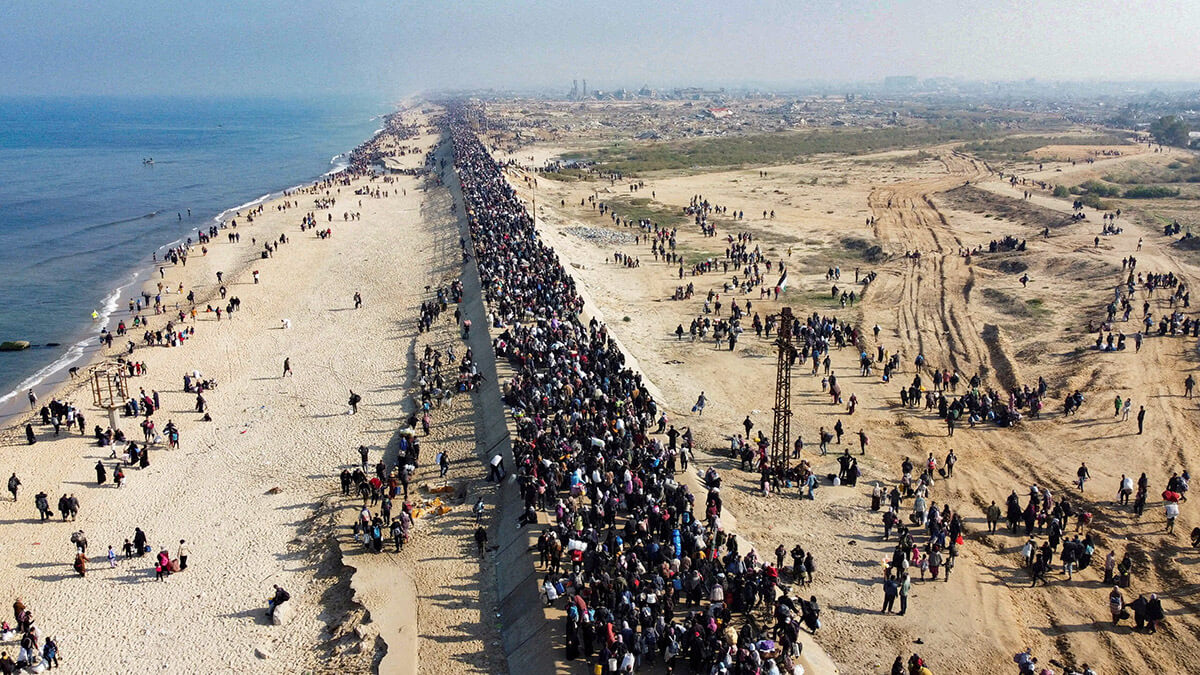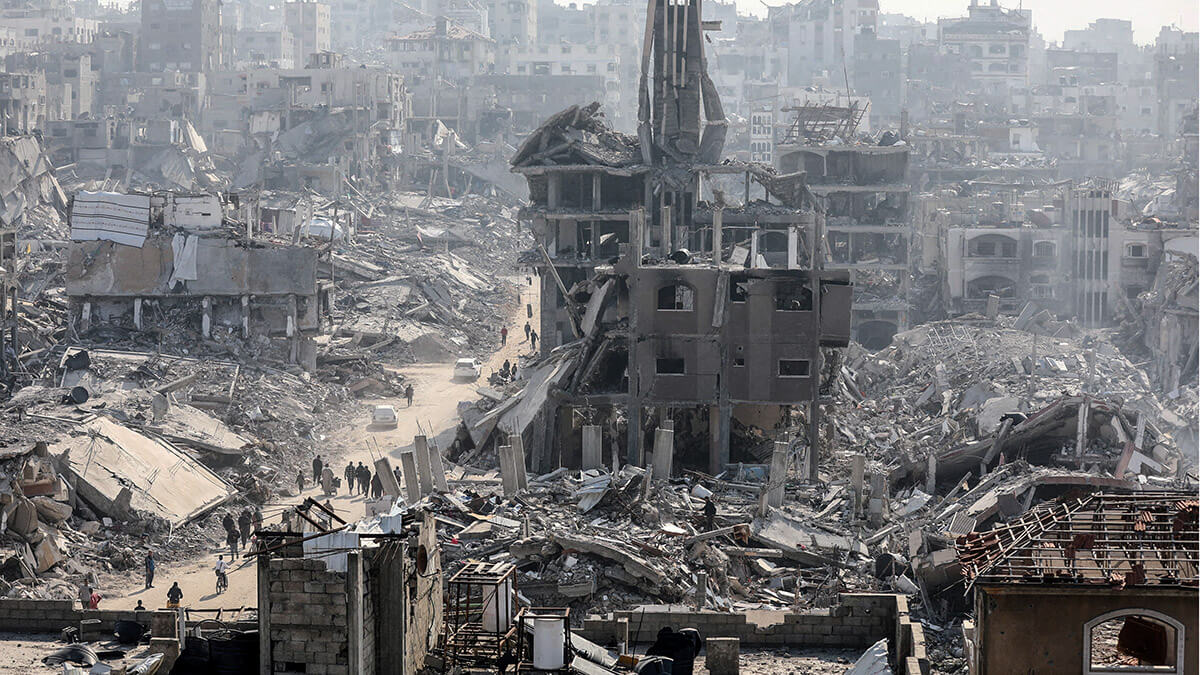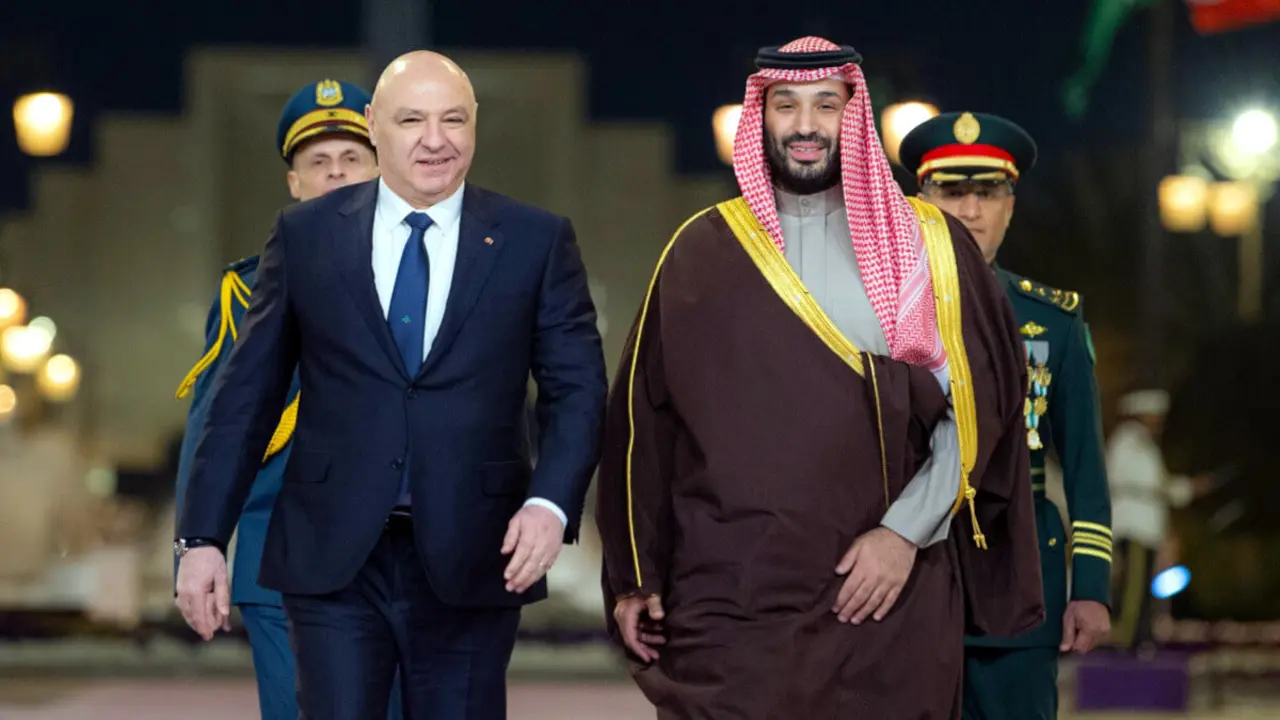Trump's plan for Gaza is unrealistic, but it will have significant consequences in the Middle East

US President Donald Trump's plan to take control of the Gaza Strip and relocate Palestinians to neighbouring countries has generated strong indignation in the Arab world.
Even if Trump's proposal does not materialise, the mere fact that he has suggested it puts Jordan and Egypt, two key allies of Washington in the Middle East, in a very delicate situation.
The Hashemite Kingdom already hosts approximately 2 million registered Palestinian refugees, according to data from the United Nations Relief and Works Agency for Palestine Refugees in the Near East (UNRWA), so accepting more Palestinian refugees could undermine national stability.

Egypt, meanwhile, despite having more surface area and desperately needing US economic aid, is firmly opposed to the Islamist radicalism it has tried to eradicate in the Sinai, as well as to the Muslim Brotherhood, of which Hamas is a part.
Kobi Michaeli, a researcher at the Institute for National Security Studies in Tel Aviv, explained at a meeting with journalists organised by EIPA that US relations with Egypt and Jordan are key to Trump's plan for Gaza.
‘Trump has a very significant margin for manoeuvre over the Egyptians and the Jordanians. The Jordanians are totally dependent on the United States and are in an even worse position in relation to Egypt,’ said Michaeli.

According to the Israeli researcher, Trump hopes that both the Egyptian president, Abdel Fattah Al-Sisi, and King Abdullah II will be less critical of the plan. For Michaeli, the main reason why both of them refuse to accept the plan is based on ‘their own electoral base’. ‘They fear that this will generate a wave of criticism that could affect their stability, because they will be perceived as those who sold out the Palestinians’.
Despite Trump's statements, Michaeli describes the plan as ‘unrealistic’ due to all the obstacles it faces. However, he emphasises that the consequences of this plan are ‘broader and very significant’.
‘Trump is willing to accept a ‘no’ (from the Arab countries) but, on the other hand, I think accepting the ‘no’ means they will have to give something in return’. In this sense, Michaeli points out that this whole plan is closely related to the process of normalisation between Israel and Saudi Arabia, as well as to the new regional architecture that reflects Trump's vision for the Middle East.

However, the Palestinian cause, especially the situation in Gaza, is one of the main obstacles for the US president in achieving this new scenario in the region. On this point, Michaeli urges the Arab countries to assume their responsibility. ‘The Arab countries are responsible for pushing the Palestinian problem for years, using the Palestinian question as a tool against Israel,’ he says.
Michaeli recalls that both Egypt and Jordan could have created an independent Palestinian state when they controlled the Gaza Strip and the West Bank respectively, but they decided not to. Now, with this plan, ‘Egyptians and Jordanians refuse to accept Palestinians, arguing that it is a very serious threat to their security, although they have no objection to this security threat remaining on Israel's border,’ he adds.
But what do the Gazans think? According to Michaeli, the ‘vast majority’ are willing to leave if they are guaranteed to be able to return after the reconstruction of the Palestinian enclave. However, this reconstruction will be a long process that could take up to 15 years.

Even before the war began, more than 40% of the population of Gaza were interested in leaving the territory. Now, with 70% of buildings destroyed, that percentage may have risen. Moreover, as long as Hamas is in power, ‘there will be no future in Gaza’.
Trump's statements have also raised concerns about the current ceasefire between Israel and Hamas, on which the fate of the Israeli hostages depends. However, Michaeli believes that this truce is likely to continue.
‘Hamas needs time to re-establish its presence in Gaza, to coordinate with countries such as Turkey or Iran and to escalate the situation in the West Bank,’ he explains. Michaeli also warns and emphasises that the terrorist group's main objective is still to carry out another 7/10 attack, as members of the organisation have pointed out on several occasions.










